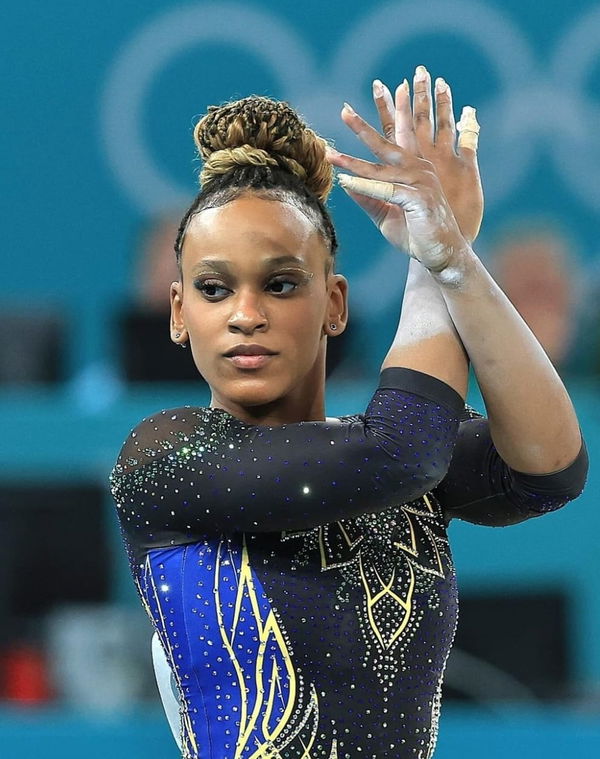

A global conversation has started over changes introduced to Brazil’s Lei de Incentivo ao Esporte. Elite athletes like Rebeca Andrade are at the forefront of the discussion. The proposed inclusion of this law in complementary bill 210/24 represents a critical threat to the funding mechanisms that support sports development in the country. In simple words, it endangers Brazil’s sports fund. Rebeca Andrade has faced financial hardship in her sporting career and understands the importance of this law. To break it down, it allows talented young athletes to gain access to essential resources and opportunities for international success.
It’s not just about securing the funding but more about ensuring a sustainable future for sports in Brazil, promoting equal access, and enabling athletes to reach their full potential on the global stage. Rebeca’s story is closely tied to this issue. Her journey through financial struggle highlights the importance of consistent funding in overcoming barriers to success. The Lei de Incentivo ao Esporte has been a lifeline for her, allowing her to train and compete at the highest level without financial constraints. Major concerns have been expressed for opposing this. Everyone, from sports federations to athletes, is uniting.
The Importance of Lei de Incentivo ao Esporte for Brazilian Athletes
The proposed changes in Project Law 210/24 threaten to roll back progress by potentially limiting access to these essential resources and affecting athletes’ training environments. The Brazilian Olympic Committee, along with various sports federations, has warned that could devastate the country’s sports infrastructure, setting back development by decades. Time Brasil stated, “The end of the Lei de Incentivo ao Esporte would be an unprecedented setback for Brazilian sports. This law is essential for promoting access to sports for vulnerable communities and supporting elite athletes.” It will also reduce opportunities for young athletes and impact Brazil’s performance on the global stage.
ADVERTISEMENT
Article continues below this ad
Andrade has benefitted from various scholarship programs like Bolsa Atleta Program, Programa Bolsa Rio and indirectly via the Lei de Incentivo ao Esporte as it facilitates funding for big-scale initiatives like improving facilities and granting community-based support systems. That’s why saying she understands this would be an understatement. And now she is spreading awareness about it in full force. Yesterday, she even posted an Instagram story to show her support. In the said story, she reshared the post posted by ‘Time Brasil’ from their official Instagram handle.
View this post on Instagram
Why is it so important to save the law? So, the Lei de Incentivo ao Esporte was enacted in December 2006 during President Luiz Inácio Lula da Silva’s first administration. This law allowed individuals (up to 7%) and corporations (up to 2%) to put their income tax to fund sports projects.
The funds collected are taken up by various non-profit organizations to support athletes by improvising their whole training environment. To date, about 1800 projects have been successfully supported via this law. In 2023, nearly R$900 million in funding for sports development was raised due to the law and the sports scene continued to skyrocket in Brazil.
What’s your perspective on:
Will Brazil's sports future crumble without the Lei de Incentivo ao Esporte? What's your take?
Have an interesting take?
ADVERTISEMENT
Article continues below this ad
Rebeca Andrade’s and global support for the Lei de Incentivo ao Esporte
Rebecca Andrade understands the importance of consistent funding for athletes. Rebeca is in the Podium category in Bolsa Atleta, which ranges from R$5,543 to R$16,629 per month and is considered the highest in the program. The coalition supporting Time Brasil includes not just Brazilian athletes like Rebeca Andrade, Hugo Calderano, Bruno Fratus, and Erika Coimbra; sports communities like CBSurf Brasil but also global figures and organisations like UNDC (UN Development Program) recognize its impact on the sports community as a whole. This unified support highlights the significance of the Lei de Incentivo ao Esporte for not just Brazilian athletes but also for maintaining global sports standards.

ADVERTISEMENT
Article continues below this ad
It’s not just about securing the funding but more about ensuring a sustainable future for sports in Brazil, promoting equal access, and enabling athletes to reach their full potential on the global stage. She understands this deeply as she has been in the same shoes, the scholarships received by Andrade (Atleta Program and Programa Bolsa Rio) has been a lifeline for her, allowing her to train and compete at the highest level without financial constraints. Major concerns have been expressed for opposing this, from sports federations to athletes. They all are uniting.
If we look at the future of sports in Brazil, it is at the center of the opposition to Project Law 210/24’s modifications. Its standing in international sports is likely to suffer if the Lei de Incentivo ao Esporte is dismissed, endangering functioning of sports communities and young athletes’ future. To protect them, the law must be saved– athletes from across the globe, including Rebeca Andrade, demonstrate their support for this cause by sharing, voicing and increasing force to save it in whatever capacity they can. Showing how important it is to uphold this regulation in order to maintain sports growth and guarantee a better future for the athletes of tomorrow.
ADVERTISEMENT
ADVERTISEMENT
ADVERTISEMENT
ADVERTISEMENT


Will Brazil's sports future crumble without the Lei de Incentivo ao Esporte? What's your take?